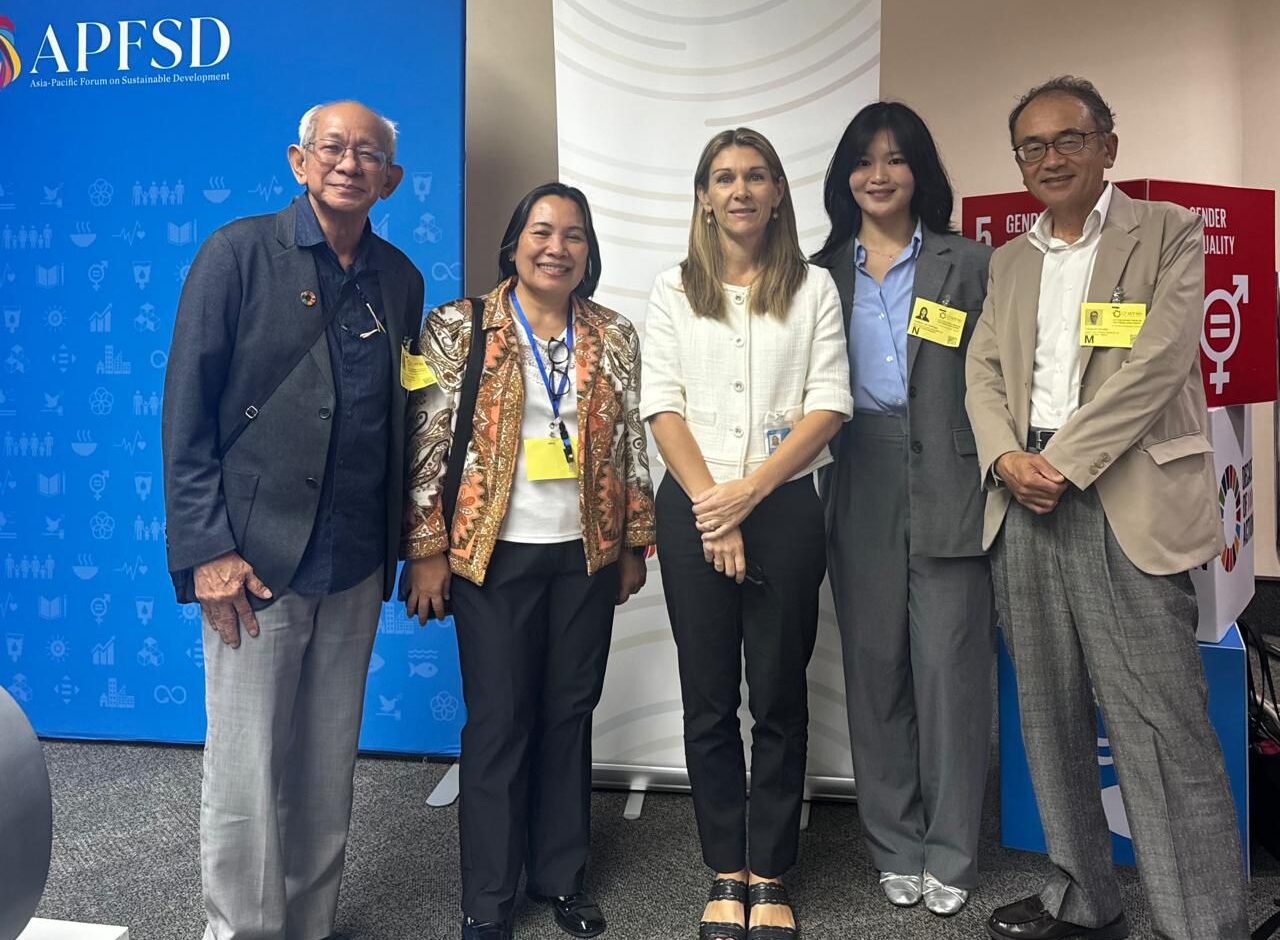
ASPBAE Participates in the 12th Asia Pacific Forum on Sustainable Development (APFSD)
ASPBAE actively engaged in the processes leading to and in the main discussions of the 12th Asia-Pacific Forum on Sustainable Development (APFSD), highlighting the interlinkages of SDG 4 with the SDGs under review. Organized from 25 to 28 February 2025 by the United Nations Economic and Social Commission for Asia and the Pacific (UNESCAP) at the UN Conference Center (UNCC) in Bangkok, Thailand, the 12th APFSD focused on the theme of “Advancing sustainable, inclusive, science- and evidence-based solutions for the 2030 Agenda and its SDGs for leaving no one behind in Asia and the Pacific.”
The APFSD is an annual, inclusive intergovernmental forum that supports the follow-up and review of progress on the 2030 Agenda for Sustainable Development and the Sustainable Development Goals (SDGs) at the regional level. Participating in the Forum is a diverse group of stakeholders, including representatives from Member States, UN agencies, international organizations, civil society, youth, and other stakeholders, to discuss the regional trends and challenges, share best practices and lessons learned and strengthen regional collaboration.
The 12th APFSD focused on assessing the overall progress on the SDGs and delving deep into specific SDGs under review, specifically Goal 3 on good health and well-being; Goal 5 on gender equality; Goal 8 on decent work and economic growth; Goal 14 on life below water; and Goal 17 on Partnership for the Goals.
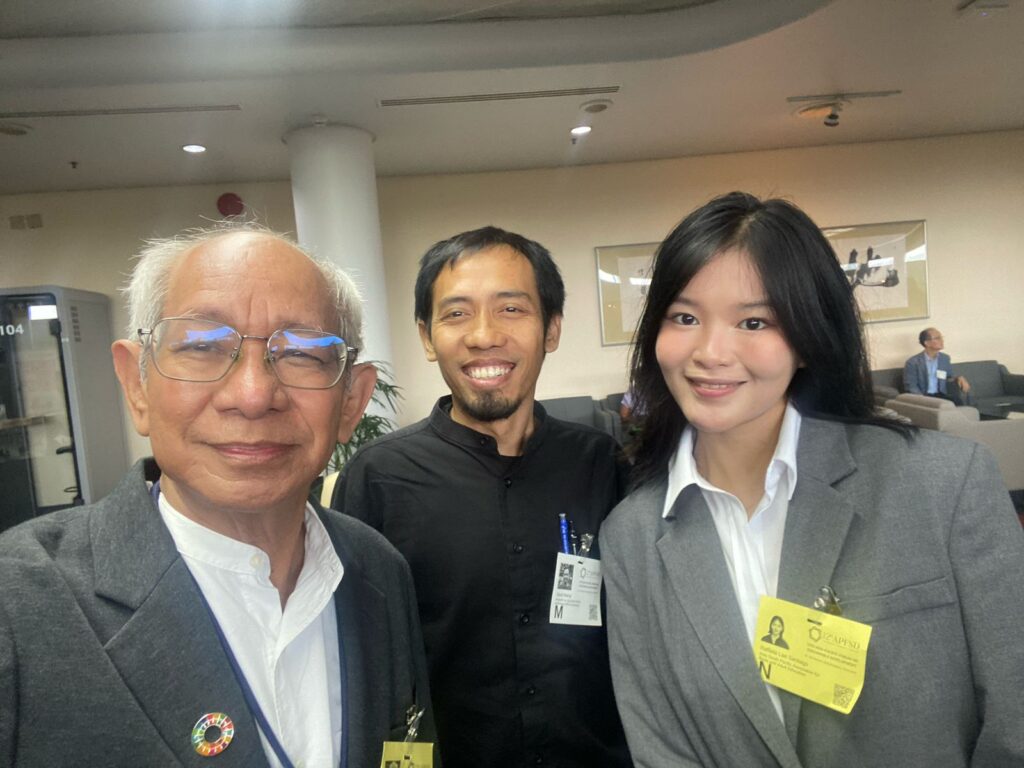
The ASPBAE delegation to the 12th APFSD is composed of its Executive Council (EC) Representative for East Asia, Takafumi Miyake, who also represents the Japan Civil Society Network on SDGs (SDGs Japan) and Japan NGO Network for Education (JNNE), Rene Raya (ASPBAE Regional Advocacy Coordinator and Lead Policy Analyst), Florence May Cortina (ASPBAE Education Out Loud (EOL) Regional Coordinator), and Lae Santiago (ASPBAE Advocacy and Youth Engagement Officer). Also joining the delegation from ASPBAE’s member coalition is Ubaid Matraji, National Coordinator of the Network for Education Watch Indonesia (NEW Indonesia).
ASPBAE’s delegation brought attention to the important interlinkages between SDG 4 with the Goals up for review in the sessions of the Roundtable Discussions, in which participants build a shared understanding of the regional outlook and progress on the SDGs up for review and discuss priorities for action. ASPBAE highlighted the following points in the Roundtable Discussions:
✅Analyze the SDGs in a more holistic approach, ensuring interlinkages with education, poverty, gender and housing, which show the strongest impacts on health.
✅Women’s economic empowerment and prioritizing gender-transformative education systems.
✅Invest in continuing skills and livelihood training and development, as well as education for decent work and livelihoods of marginalised and socially vulnerable youth groups, including technical and vocational education and training (TVET) and relevant mentorship.
✅Develop and strengthen equitable, flexible learning and training pathways, alternative learning programmes and lifelong learning opportunities.
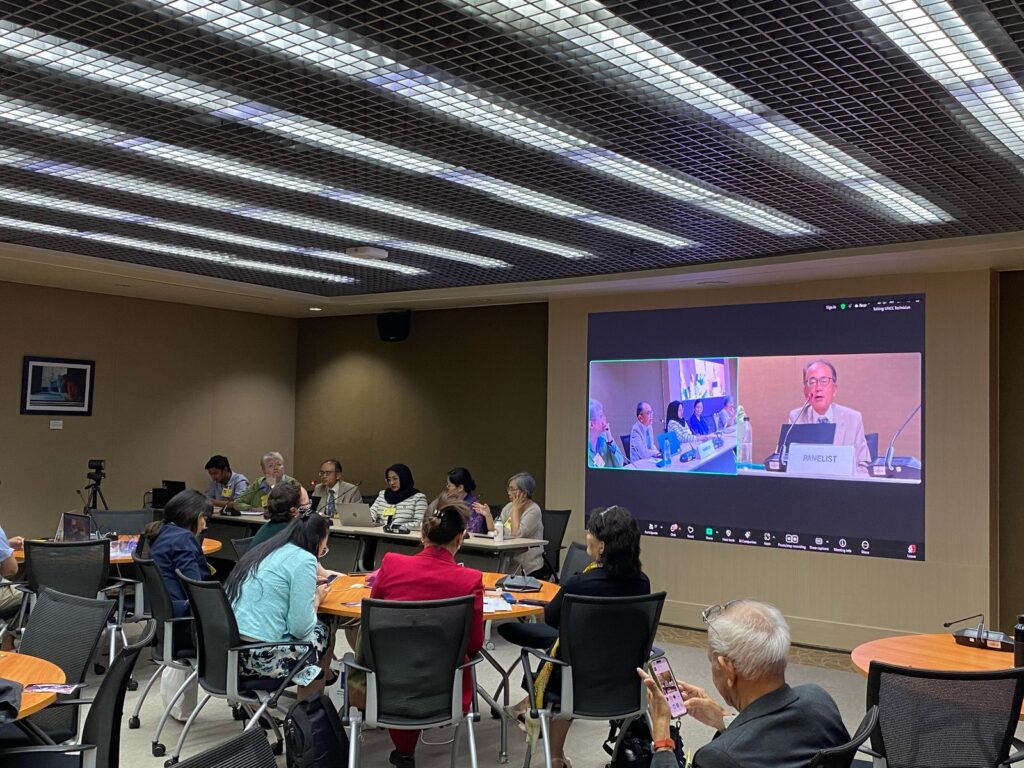
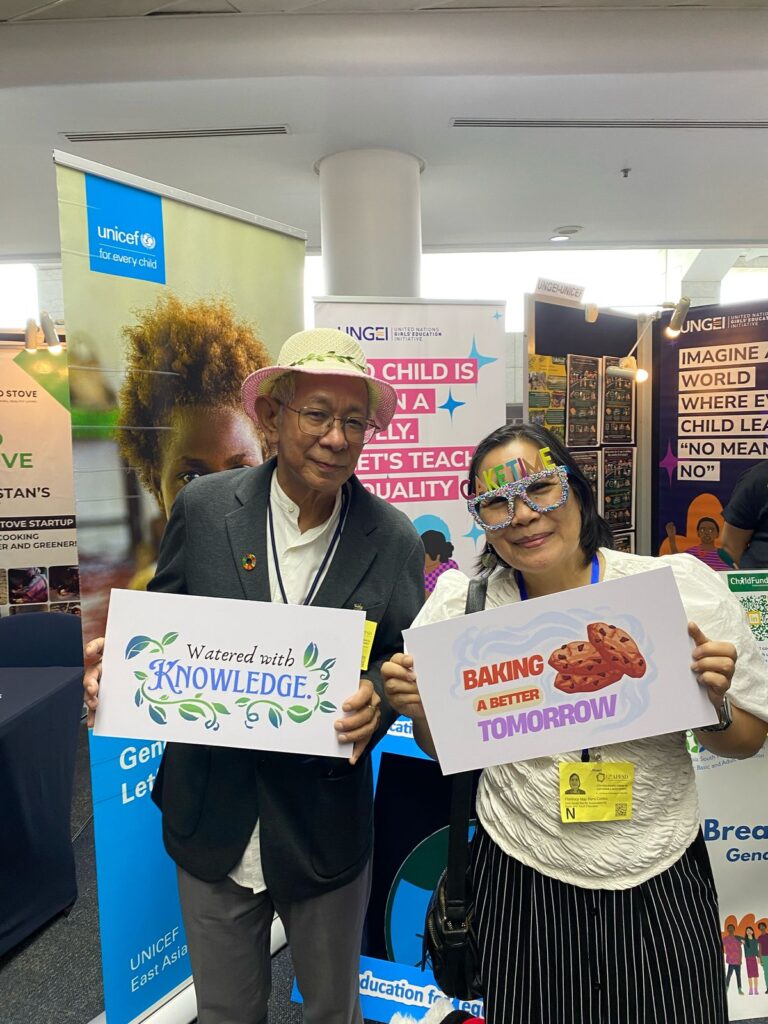
Further, ASPBAE, in cooperation with UNESCAP, UNICEF, Global Partnership for Education (GPE), Asian-Pacific Resource and Research Centre for Women (ARROW) and Baha’i International Community, put a spotlight on the stories and experiences of five young women leaders in empowering women and girls in the region through a Brown Bag session entitled “Rise and Thrive: Empowering the Women and Girls of Tomorrow” on 28 February 2025.
Key takeaways from this onsite side event include:
1. Education unlocks opportunities: Ain Husniza, a Malaysian activist and founder of Pocket of Pink, a feminist initiative combining art, advocacy, and education to empower youth, reflected on growing up as a girl in a low-income family. “Education was my way out. It’s the reason I can speak to you here eloquently in English. It’s why I am standing with you here today…When I had an education, it didn’t matter if my shoes were fancy. I was truly seen through my merits, not what I was wearing or my socioeconomic status.”
2. Mentorship builds confidence and leadership: Dina Chaerani, an advocate for sexual and reproductive health and rights in Indonesia, shared the impact of a gender-transformative education program that worked with a range of stakeholders at school and community levels to ensure all needs are addressed and that all voices have space at the table preventing sexual violence in schools. “I grew because of their mentorship.” She worked on co-creating a youth advisory panel and went on to launch Lapor Yuk!, an online reporting application to prevent sexual violence against children.
3. Community-based solutions are key: Aneeshaa Kaviarasan, Secretary General of the Spiritual Assembly of the Bahá’ís of Malaysia, highlighted “Women’s empowerment is not just about equality. How can we build a flourishing society if half of its members are not given the opportunity to contribute to the betterment of the world?” She stressed that community-based initiatives are key: “When we talk about education or empowerment, we have to do it with entire communities.”
4. Knowledge empowers girls, empowering girls leads to gender equality: Nidhi Tewari, a researcher and young leader from India working at the intersection of climate and gender, was the first daughter in a family in a rural part of India where people prefer to have sons and women’s autonomy is curtailed. “I found a lot of solace in books, even though reading materials outside of schools was not allowed. I would hide novels behind my Physics book and find solace in literature.” She was inspired by the women she met during field visits who wanted to do more with their limited resources. “Everyone in this world has a right to their voice, has a right to agency, to do what they want to do. No girl should have to hide novels behind her Physics book.” Restrictive gender norms often limit girls’ access to knowledge. Gender-transformative education works to break these barriers, ensuring girls develop the skills and confidence to shape their futures.
5. Being part of a movement strengthens girls’ voices: Shayal Nand, a young feminist leader dedicated to advancing gender justice in the Pacific, shared how she learned to speak up and became more vocal. “For a person who’s always been told what to wear, how to act, been bullied for their skin tone, I’ve always tried to keep things to myself.” Shayal found her niche in gender equality and justice, it was the space she has always been looking for, to make a change, and to feel included. Shayal now works in policy advocacy, addressing systemic barriers to women’s engagement in decision-making and leadership.
These five activists demonstrate the deep connection between education and gender equality. Their stories emphasised how working together to support safe and inclusive learning environments, and how promotion of gender equality in and through education is key. Gender-transformative education not only equips young people—especially girls—with the tools to challenge harmful norms, but also fosters skills and confidence to tell their stories and carry out their initiatives. Their stories reaffirm that investing in education is essential to achieving SDG 5 (gender equality) and creating a more just and equitable future for all.
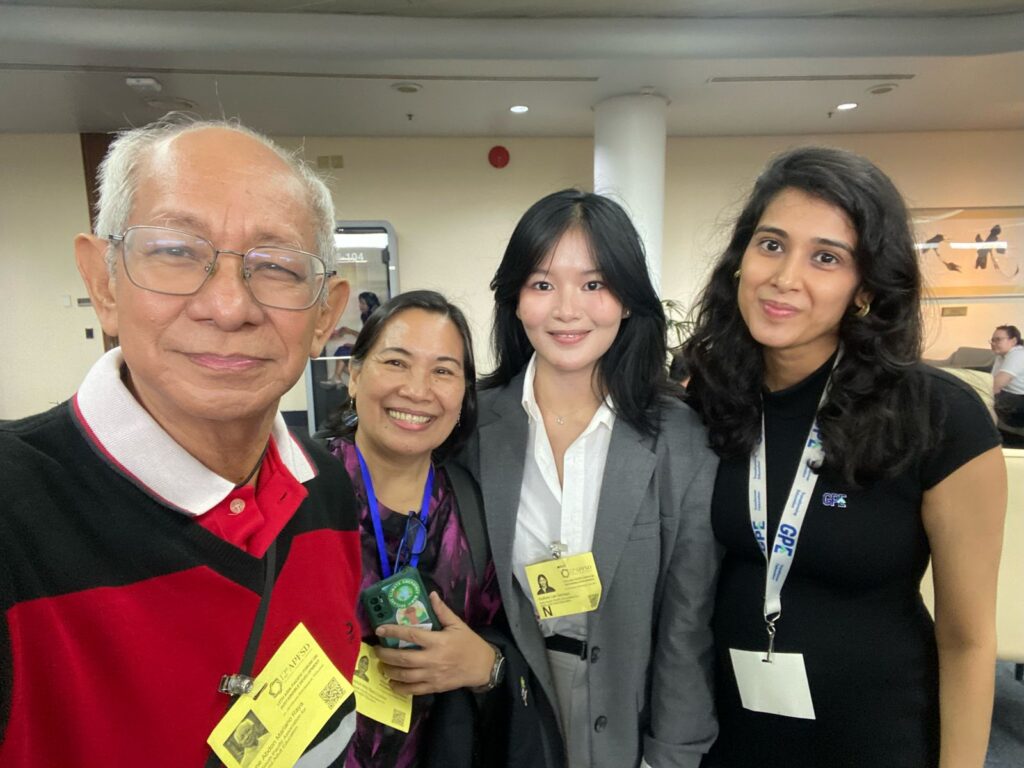
Lae Santiago, Advocacy and Youth Engagement Officer of ASPBAE, expressed her appreciation for the efforts of the young feminists and recognized the work of the previous generations of feminists who have paved the way. She also asked the speakers about the role of intergenerational dialogue and solidarity in their work. Maya Cortina, ASPBAE Regional EOL Coordinator, also lauded the young feminist activists and hoped for more intergenerational discussions between younger and more senior feminist activists.
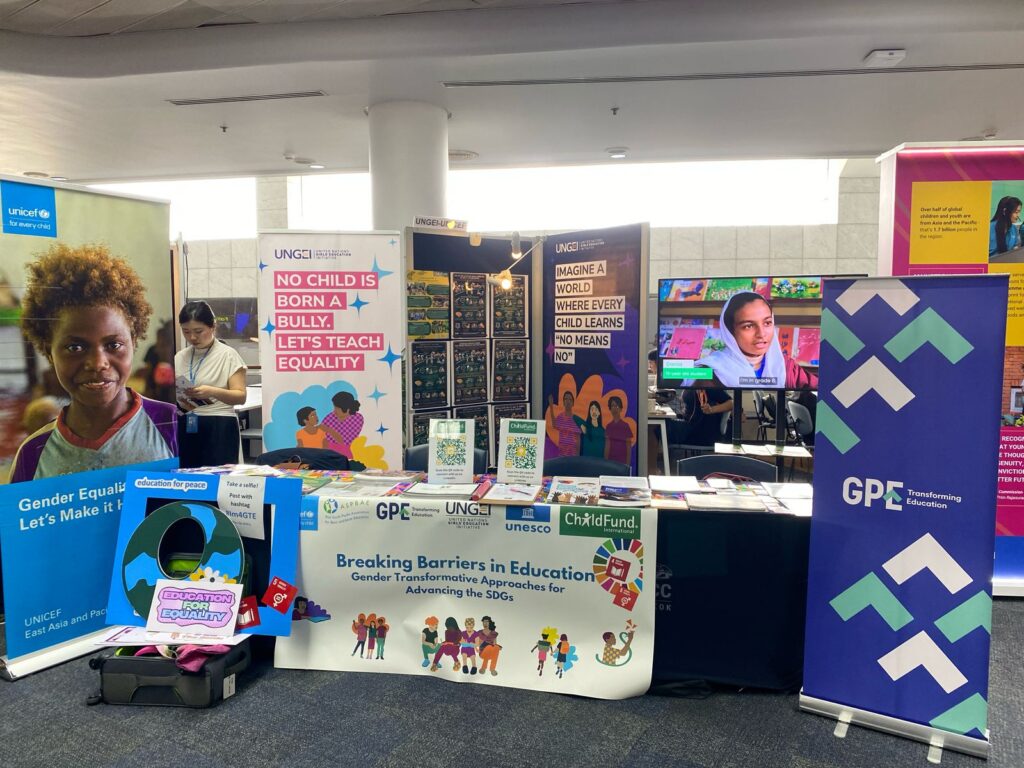
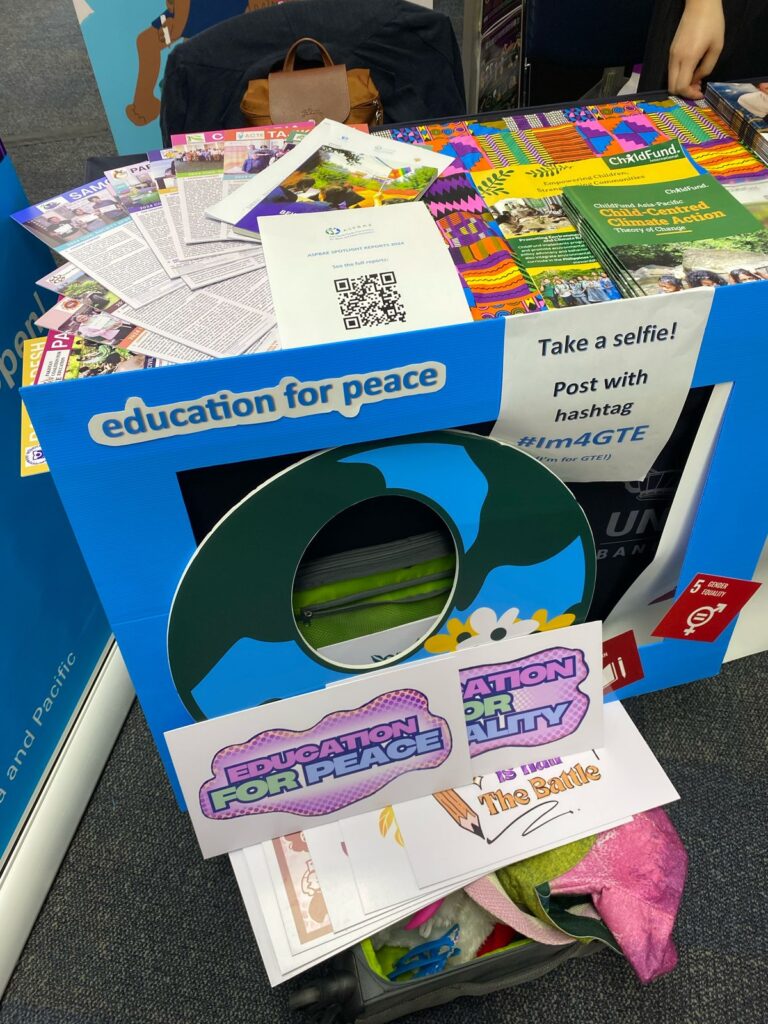
ASPBAE also mounted a display booth during the APFSD 2025 days from 24 to 28 February 2025. With the theme “Breaking Barriers in Education: Gender Transformative Approaches to Achieving the SDGs,” the booth presented various materials from the organizers, which included ASPBAE, the UN Girls’ Education Initiative (UNGEI), the Feminist Network for GTE (FemNet4GTE), the Global Partnership for Education (GPE), ChildFund Asia and UNESCO Bangkok.
The booth also provided an opportunity to interact with APFSD 2025 delegates as it featured a mix of unique elements such as videos and props to take photos, as well as a sign-up sheet for future collaboration. ASPBAE displayed its Spotlight Reports of 2024 which highlighted the issues of education financing, gender equality and social inclusion, and climate action. ASPBAE also handed out copies of the Asia Pacific Declaration on GTE which it produced in 2024 in collaboration with feminist organisations, the Pratisandhi Foundation (India), Aahung (Pakistan) and UNGEI.
Additionally, ASPBAE’s EC representative for East Asia, Takafumi Miyake, was among the speakers in the side event organized by the Asia Civil Society Partnership on Sustainable Development (APSD) on “Civil Society Engagement on Voluntary National Review (VNR) with a focus on Gender Equality,” where he discussed their engagements in the VNR processes in Japan. He also underscored the importance of raising public awareness on education and the SDGs to change peoples’ misconceptions about the SDGs being much more targeted at issues at the global level rather than at the national and local levels.
Aside from connecting with representatives of APSD, UNGEI, UNESCO, GCE, GPE and other networks, ASPBAE also took the opportunity in the 12th APFSD to connect with the new Deputy Director of the UNESCO Regional Office in Bangkok, Marina Patrier, who recently joined the regional UNESCO team and participated in the Forum.
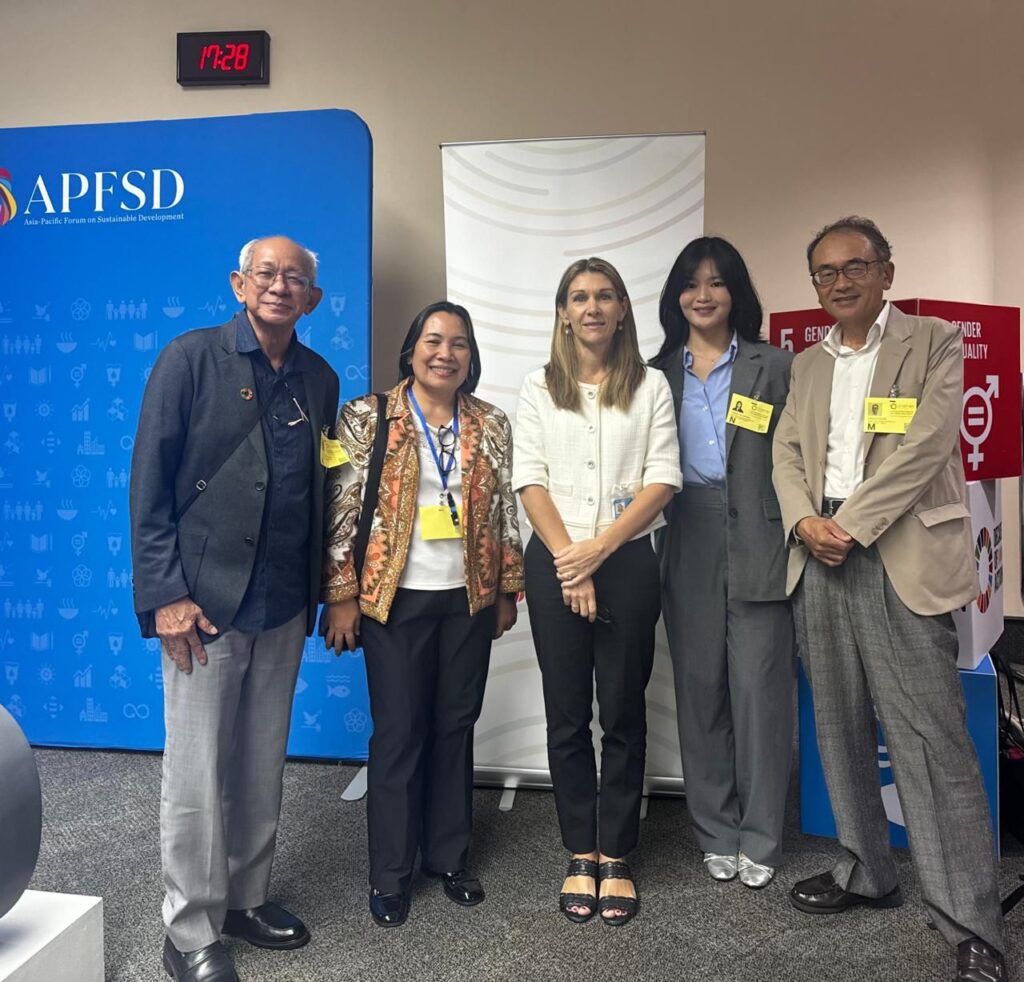
The Report yielded from the 12th APFSD discussions highlighted the following points related to SDG 4 as interlinked with Goals 3 (good health and well-being), 5 (gender equality) and 8 (decent work and economic growth):
✅sexuality education and access to sexual and reproductive health and rights;
✅accelerating just transitions and ensuring decent jobs by strengthening social protection for displaced workers and facilitating access to skills training and education; and
✅the need for mutual learning with regard to designing skills development programmes.
The outcomes of the discussions – the APFSD report and the Chair’s Summary – will be submitted to the UN Economic and Social Council (ECOSOC) and contribute to shaping the discussions at the upcoming High-Level Political Forum that will be convened from 14 July to 23 July 2025, under the auspices of the ECOSOC in New York. This Forum is expected to bring together ministerial and high-level representatives of governments, as well as experts and stakeholders, including heads of UN entities, academics and other experts and representatives of major groups and other stakeholders (MGoS).
ASPBAE also actively engaged in the events leading up to the 12th APFSD- the APFSD Youth Forum and the Peoples’ Forum (APPFSD). Click on these links to read about ASPBAE’s engagements in these events. ✱